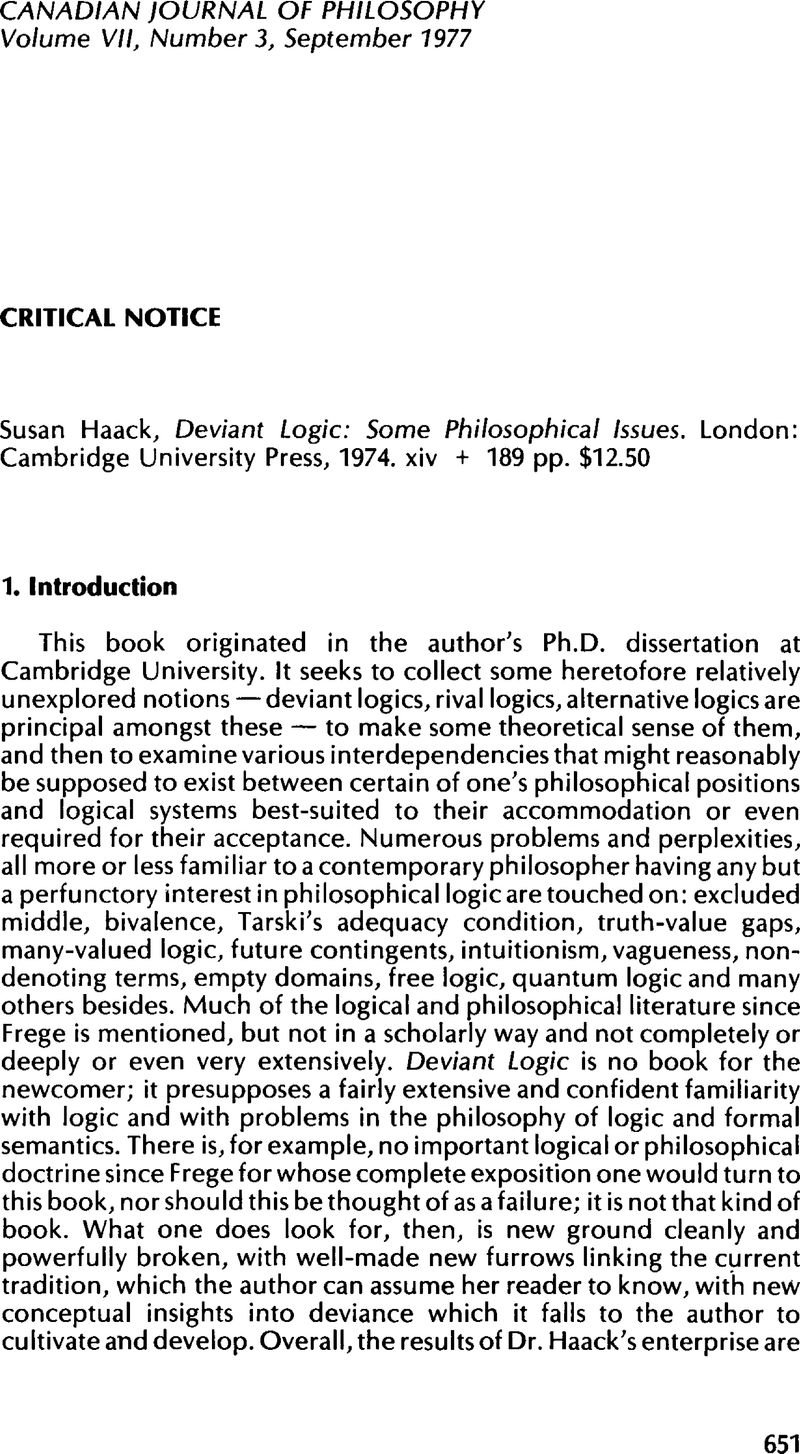Published online by Cambridge University Press: 01 January 2020

1 In fact, it fell to a referee to discover that detachment did not hold in this treatment of the classical truth-functions. Anderson and Belnap did not begin their enterprise with the classical heresy, “DS cannot be true!”, but rather with the aim of presenting a good “axiomatization of the classical two-valued propositional calculus … “(301).
2 I gather that it is safely assumed that a logic isn't classical unless its values are just the classical truth-values. But what are they—truth and falsity? If so, a standard Boolean algebra of propositions with values of 1 and 0 fails to qualify. But this is plainly absurd; so something else is meant by “classical values”. But what?
3 As the reviewer came to learn from Routley's “The Semantics of First-Degree Entailments”, typescript, Monash University (1968), pp. 23–24; subsequently published in Mathematische Annalen 96 (1972) 58-84. Dr. Haack herself makes much the same point when she asserts that excluded middle holds that” ‘p V∼ p’ is a theorem” (66). But this is hardly a principle of truth (i.e., a principle of truth theory), even if the principle is true.
4 E.g. “Bivalence does not hold”.
5 “The Limitations of Generative Grammar”.
6 It surprises me that Dr. Haack later shows herself willing to give T up, in order to solve quite ordinary problems having to do with non-denoting singular terms and empty domains (145).
7 Although ![]() does not hold for certain formalized systems of inference, nothing in Dr. Haack's discussion of Aristotle's argument shows that this is one such.
does not hold for certain formalized systems of inference, nothing in Dr. Haack's discussion of Aristotle's argument shows that this is one such.
8 This is rough; for somewhat greater caution, see Woods, “Semantic Kinds”, Philosophia 3 (1973) 117-151.